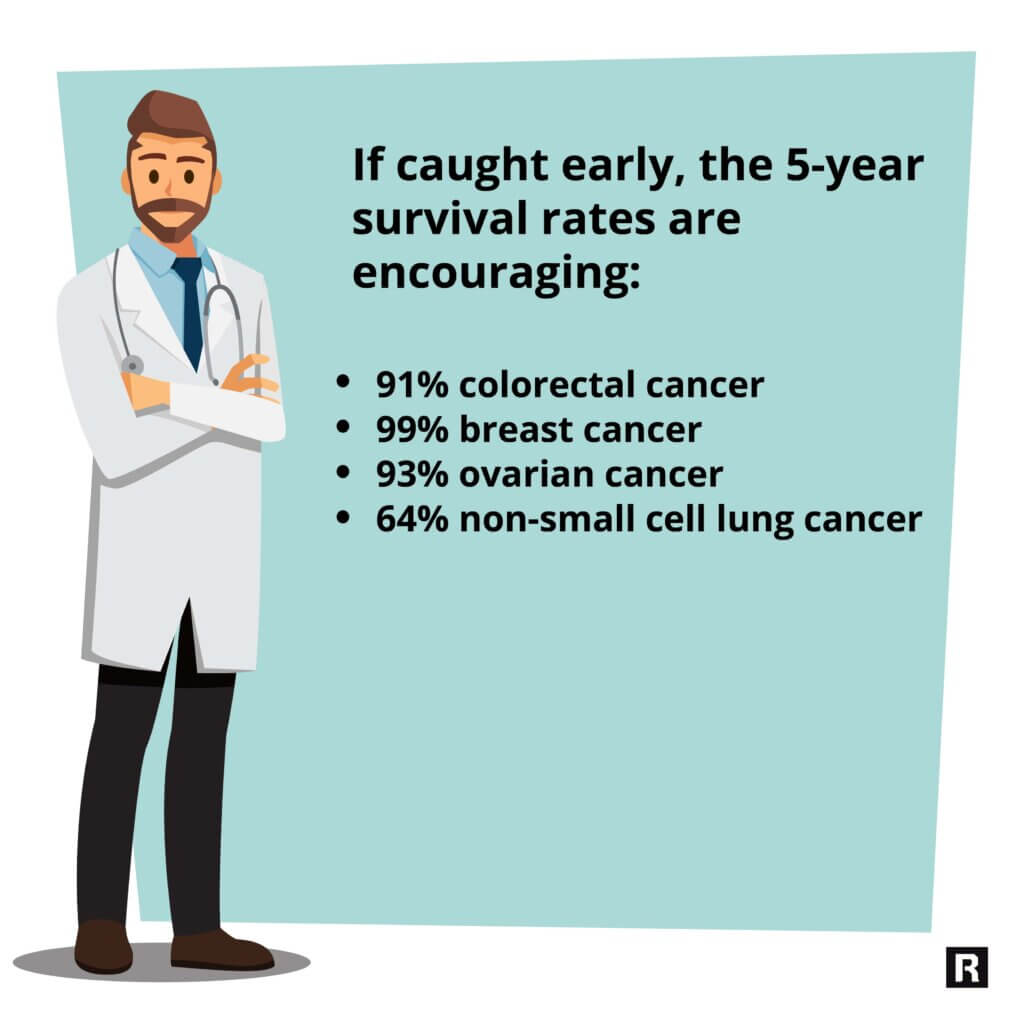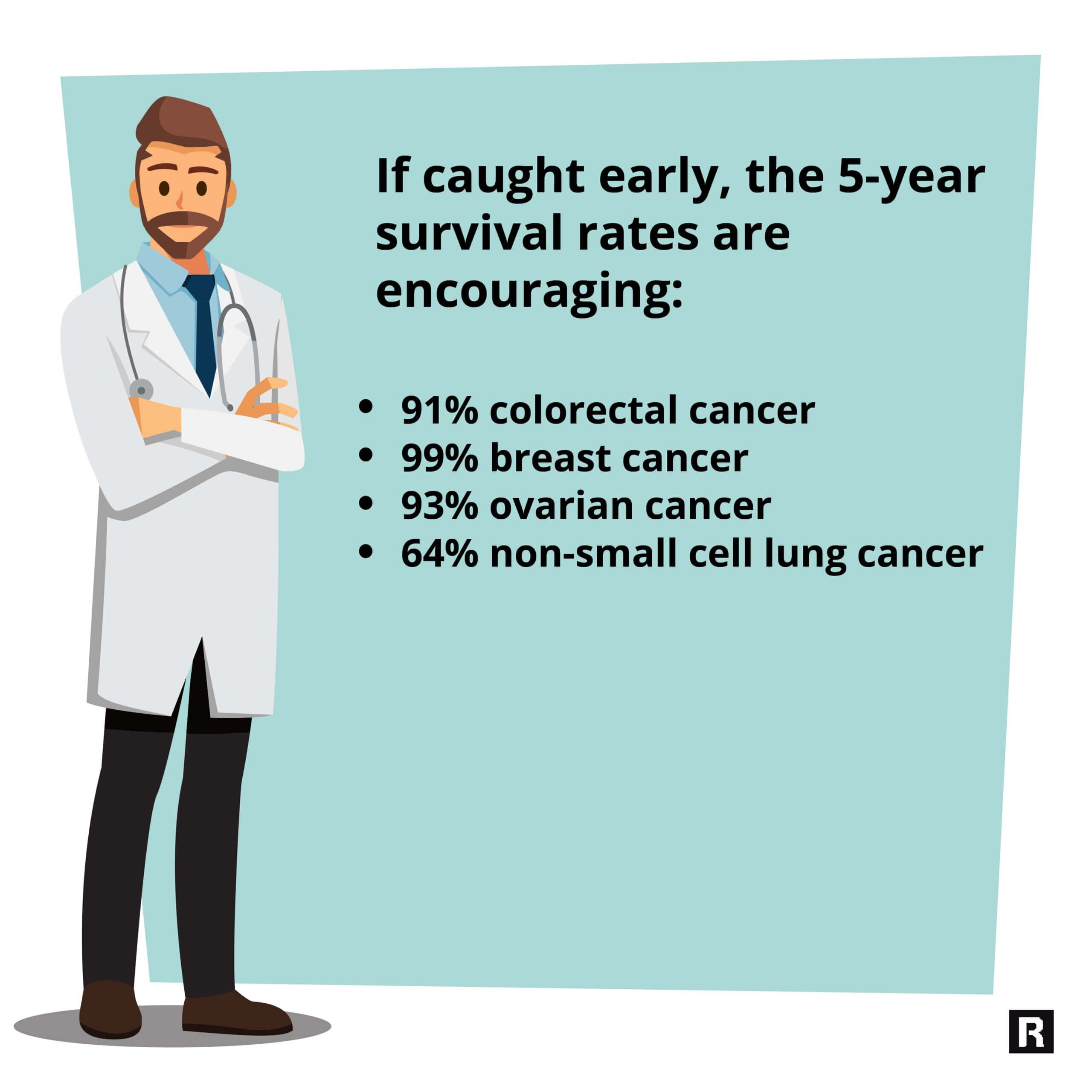
Cancer misdiagnosis claims are among the most serious personal injury claims. A delayed diagnosis may result in the cancer progressing, which in turn could lead to a premature death. A delayed diagnosis of cancer by your medical provider due to not ordering appropriate tests, not referring you to a specialist, or misdiagnosing your medical condition as something else are all major errors in clinical practice and a significant cause of medical malpractice claims. If you believe that a medical practitioner or facility provided substandard care that delayed the diagnosis and treatment of cancer, you may have legal grounds to file a claim for compensation.
Factors Leading to Delayed Diagnosis of Cancer
Each year, approximately 128,000 Americans suffer some degree of harm due to an initial cancer misdiagnosis. Early detection of cancer generally increases the chances of successful treatment and likely increases patients’ chances of survival. Delayed diagnosis of cancer and the lack of early treatment can increase a patient’s physical and emotional suffering, necessitate more aggressive treatments, and even lead to death. The delay in diagnosing cancer can result from various negligent actions. Some scenarios include:
- A doctor dismissing a patient’s symptoms as signs of a less serious illness
- The inability to recognize a tumor
- A medical provider who should have taken more action, like running different tests or asking different or more probing questions
- Healthcare providers failing to screen patients at risk of developing cancer
- Missing a cancerous lesion in a biopsy
- Failing to consider patient and family history, as well as risk factors
- Tissue specimens that are improperly collected, handled, read, or interpreted
- Failing to order an appropriate diagnostic test
- Misreading test results
- Missing or switched lab results
- A doctor failing to refer a patient to the correct specialist or consultant
- A tumor mass that is misdiagnosed as noncancerous
- Medication errors, such as dose miscalculations
- A health care provider who fails to understand or acknowledge the patient’s complaints
- Misreading of x-rays
- Failing to identify complications and contraindicated medications
- Delaying chemotherapy or radiotherapy leading to metastatic cancer
Common Types of Cancer that Are Misdiagnosed
All types of cancer can be misdiagnosed, but some types of cancer have signs and symptoms similar to other diseases. Pulmonary cancer has symptoms similar to other lung diseases, such as tuberculosis (TB) for example. Moreover, some rare types of cancers such as childhood acute lymphoblastic leukemia and Merkel cell carcinoma might not be recognized by medical providers at all.
The following are the most commonly misdiagnosed cancers:
- Mesothelioma (rare cancer that develops in the linings of certain tissues that cover many of the internal organs)
- Childhood acute lymphoblastic leukemia
- Anal cancer
- Merkel cell carcinoma
- Thymic carcinoma
- Hepatoblastoma
- Glioblastoma
- Ewing sarcoma
- Kaposi sarcoma
- Thyroid cancer in children
- Lung cancer
- Breast cancer
- Colorectal cancer
- Lymphoma
- Melanoma (skin cancer)
- Prostate cancer
- Cervical cancer
Types of Cancer Misdiagnosis
There are three main types of cancer misdiagnosis. They are:
- Incorrect Diagnosis: It occurs when a medical provider misdiagnoses a cancer patient with something other than cancer. A misdiagnosis can not only lead to a patient being on the wrong treatment, but will also delay necessary cancer treatment.
- Failure to Catch and Diagnose Cancer (Delayed Diagnosis Of Cancer): Misdiagnosis of cancer occurs when a doctor fails to diagnose a patient’s cancer in its earliest stages. Failure to diagnose a patient’s cancer in its early stages can lead to the need for more aggressive treatment options and make it more difficult to stop the progression of the disease.
- False Positive Diagnosis of Cancer: It occurs when a doctor diagnoses a patient with cancer and it turns out they don’t. Patients may undergo serious and potentially life-threatening cancer treatments, such as chemotherapy or surgery, only to find out that they never had cancer to begin with.
Does Earlier Diagnosis Make a Difference?
Early diagnosis of cancer is a critical factor associated with patient survival, and increases the chances for successful treatment. There is ample data to support this. More than 9 in 10 people with colorectal cancer will survive for more than 5 years if diagnosed at the earliest stage. Almost all women with breast cancer survive for at least 5 years if diagnosed at an early stage. More than 9 in 10 women with ovarian cancer will survive for more than 5 years if diagnosed at the earliest stage. More than 6 in 10 of non-small cell lung cancer patients will survive their disease for at least 5 years if diagnosed early.

Implications of Late Cancer Diagnosis
Just as data supports the fact that many types of cancer can be successfully treated if caught early, if diagnosed later the outcomes are not as optimistic.
- Late diagnosis of cancer may lead to metastasis, which occurs when cancer cells spread from the place where they first formed to another part of the body through the blood or lymph system, causing it to be less treatable, reducing chances of survival, and increasing the cost of treatment.
- Late diagnosis of cancer causes both psychological and financial strain for both the patient and family members.
Damages in a Delayed Diagnosis Case
If you can prove medical malpractice in a late diagnosis case, you may be entitled to significant compensation. Delayed diagnosis of cancer can lead to disastrous consequences that entail huge expenses and cause untold emotional distress on the patient and their family. You can file a lawsuit to recover economic damages, non-economic damages, and wrongful death damages.
Economic Damages
Economic damages are expenses that usually include all costs of cancer treatment due to delayed diagnosis of cancer such as surgery expenses, transportation, in-home assistance, postoperative care, prescription medication costs, and medical bills. If you lost your job because of a delayed diagnosis of cancer, you can claim compensation for lost wages and earning capacity.
Non-Economic Damages
You have the right to seek non-economic damages for a late diagnosis of cancer if you are experiencing significant emotional distress, pain and suffering, and loss of quality of life.
Wrongful Death Damages
When late diagnosis of cancer leads to the death of a loved one, you could seek wrongful death damages. These damages can cover cancer treatment before death, loss of inheritance, funeral and burial costs, and loss of care, companionship, and parental guidance.
Filing a Lawsuit for Delayed Diagnosis of Cancer
A delayed diagnosis of cancer can be devastating for patients and their families. If cancer spreads in the patient’s body, that patient may experience more pain, face a lower chance of survival, incur more medical bills, and may die as a direct result. When late diagnosis of cancer causes unnecessary harm to a patient, the patient or his or her surviving family members have the right to file a medical malpractice claim against the doctor and the hospital or clinic where the doctor works. Under New York law, an injured victim usually has two and a half years from the date that the act or omission occurred to file a lawsuit alleging medical malpractice.
How Can a Medical Malpractice Lawyer Help?
Our experienced personal injury attorneys of Rosenblum Law know how to advocate for you to get all the compensation that you deserve. We have extensive experience handling complex medical malpractice cases and work with medical experts to build successful cases on behalf of our clients. If you think that you or someone you love has been the victim of a delayed cancer diagnosis, contact the legal team at Rosenblum Law so that we may begin the process of reviewing your case and exploring the options you may have for seeking compensation.


